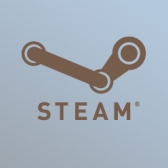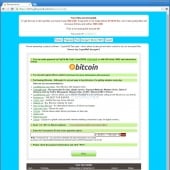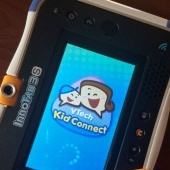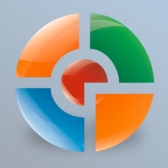-
TeslaCrypt 3.0 Released with Modified Algorithm and .XXX, .TTT, and .MICRO File Extensions
The TeslaCrypt developers release version 3.0 of their ransomware infection, which includes a modified encryption algorithm and the .XXX extension for encrypted files.
- January 12, 2016
- 03:28 PM
 88
88
-
QuickTime Update addresses Multiple Remote Code Execution Vulnerability
A security update has been released for QuickTime that resolves numerous remote code execution and application termination vulnerabilities. QuickTime 7.7.9 has been released to fix these updates and all users are advised to install it immediately.
- January 08, 2016
- 12:10 PM
 0
0
-
VMware issues Security Advisory for Shared Folders Feature
A security advisory has been released by VMware for a Windows-based guest privilege escalation vulnerability that affects VMware ESXi, Fusion, Player, and Workstation. It is suggested that all users of these products upgrade to the latest patch immediately.
- January 07, 2016
- 10:03 PM
 0
0
-
The CryptoJoker Ransomware is nothing to Laugh About
A new ransomware has been spotted called CryptoJoker that encrypts your data with AES-256 encryption and then demands a ransom to recover your files.
- January 03, 2016
- 09:10 PM
 13
13
-
Ransom32 is the first Ransomware written in Javascript
A new ransomware called Ransom32 has been discovered that is created entirely out of Javascript, HTML, and CSS. This ransomware is part of a new Ransomware as a Service that allows anyone with a bitcoin address to create their own ransomware and distribute it.
- January 03, 2016
- 10:51 AM
 5
5
-
A not so obvious tip that you may be infected with Ransomware
With file-encrypting ransomware on the rise, everyone needs to learn tips and tricks on how to protect yourself of mitigate the damages done by these infections. In this article we discuss a tip where Windows alerts you in a not so obvious way that something is not right.
- December 30, 2015
- 10:24 AM
 4
4
-
Radamant Ransomware dev not happy with Emsisoft after Decrypter Released
The developer of the Radamant Ransomware Kit does not appear to be happy with Fabian Wosar and Emsisoft for the releases of decrypters that allow the victim's to recover their files for free. This displeasure is being shown in the names of their C2 servers and strings in the malware executable.
- December 29, 2015
- 11:15 AM
 5
5
-
New Adobe Flash Update fixes 19 Vulnerabilities
A new Adobe Flash update has been released that fixes 19 reported vulnerabilities. All of these vulnerabilities are labeled critical as they could allow an attacker to take control of an affected system.
- December 28, 2015
- 02:47 PM
 1
1
-
Radamant Ransomware Kit for sale on Exploit & Malware Sites
It has been discovered that The Radamant Ransomware Kit has been for sale on underground malware and exploit sites for almost three weeks. This kit is a full turn-key solution that allows any budding criminal to distribute their own ransomware.
- December 28, 2015
- 12:31 PM
 1
1
-
Steam Caching Error leads to Account Disclosure
On Christmas Day, due to configuration on Steam's servers, visitors were able to view cached pages of other user's accounts. This allowed them to see account details such as email addresses, mailing addresses, and other private information.
- December 28, 2015
- 12:06 PM
 0
0
-
New TeslaCrypt with Minor Changes and new Ransom Note
The latest release of TeslaCrypt still refers to itself as version 2.2.0, but there are still some minor changes compared to the last release. These changes include minor differences in the ransom note and differ file header for the encrypted files.
- December 28, 2015
- 10:28 AM
 0
0
-
Microsoft warns Adware Developers to stop using Man-in-the-Middle Attacks
Microsoft announced Monday that they will no longer tolerate adware that utilizes man-in-the-middle attacks to inject advertisements into web browsers. These techniques do not use the browser's normal extensibility model and thus remove the choice from the end user.
- December 24, 2015
- 10:20 AM
 1
1
-
Emsisoft releases Decrypter for the Randamant Ransomware Kit
Last week we wrote about a new ransomware called the Ramadant Ransomware Kit that was encrypting files and adding the .RDM extension. Fabian Wosar, of Emsisoft, further analyzed the infection and was able to find a weakness in the encryption algorithm so that victim's can recover their files for free.
- December 23, 2015
- 10:15 AM
 10
10
-
Gomasom .Crypt Ransomware Decrypted
A new ransomware is in the wild that has been dubbed Gomasom (GOogle MAil ranSOM) by Fabian Wosar of Emsisoft due to its use of gmail email addresses in the encrypted file names. This ransomware is particularly destructive as it will not only encrypt data files but will also encrypt executables.
- December 21, 2015
- 02:11 PM
 11
11
-
New Radamant Ransomware Kit adds RDM Extension to Encrypted Files
A new ransomware has been discovered called the Radamant Ransomware Kit that encrypts your data using AES-256 encryption and requires you to pay .5 Bitcoins, or approximately $230.88 USD, to get your files back. Any files encrypted by this ransomware will have the RDM extension added to them.
- December 18, 2015
- 05:10 PM
 3
3
-
Zero Day GRUB2 Vulnerability Exposed
A new zero-day vulnerability was discovered for the Grub bootloader that allows attackers to bypass Grub password authentication. A security notice released by researchers Hector Marco & Ismael Ripoll states that Grub versions 1.98 (December, 2009) through 2.02 (December, 2015) are affected by this bug.
- December 18, 2015
- 03:20 PM
 0
0
-
XRTN Ransomware uses Batch Files to Encrypt your Data
A new ransomware called the XRTN Ransomware is in the wild that encrypts your data with RSA-1024 encryption using the open source Gnu Privacy Guard (GnuPG) encryption software. This ransomware is part of the same family as the VaultCrypt ransomware that we reported on in March.
- December 16, 2015
- 02:33 PM
 0
0
-
British man arrested in relation to VTech Hack
A man has been arrested by officers from the South East Regional Organised Crime Unit as part of the investigation into the hack on VTech servers. As reported earlier this month, the personal information of close to 5 million parents and 200,000 children was accessed by a hacker who broke into VTech's servers.
- December 15, 2015
- 05:42 PM
 0
0
-
Google Chrome v47.0.2526.106 released to resolve two Security Issues
Google has released version 47.0.2526.106 of Google Chrome today to resolve two Google discovered security vulnerabilities. These vulnerabilities are identified as CVE-2015-6792 and these private security issues from internal audits and fuzzing and are mentioned in issue 569486.
- December 15, 2015
- 04:56 PM
 0
0
-
Sophos purchases Surfright to strengthen Endpoint Protection in their Products
Sophos has announced the purchase of Netherlands based security software company SurfRight for $31.8 million. HitmanPro has a history of developing innovative malware removal, APT remediation, and zero-day exploit protection solutions that will be used to strengthen the end point protection in Sophos' products.
- December 15, 2015
- 02:37 PM
 0
0
 0
0





















